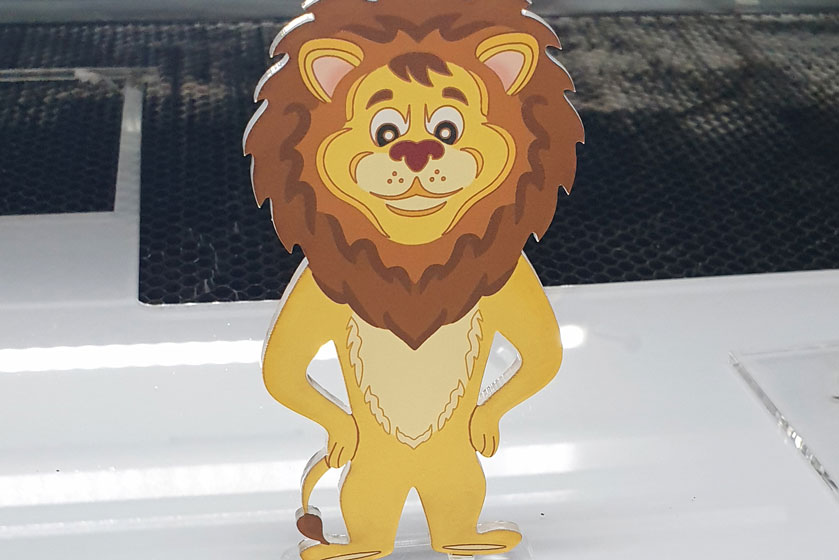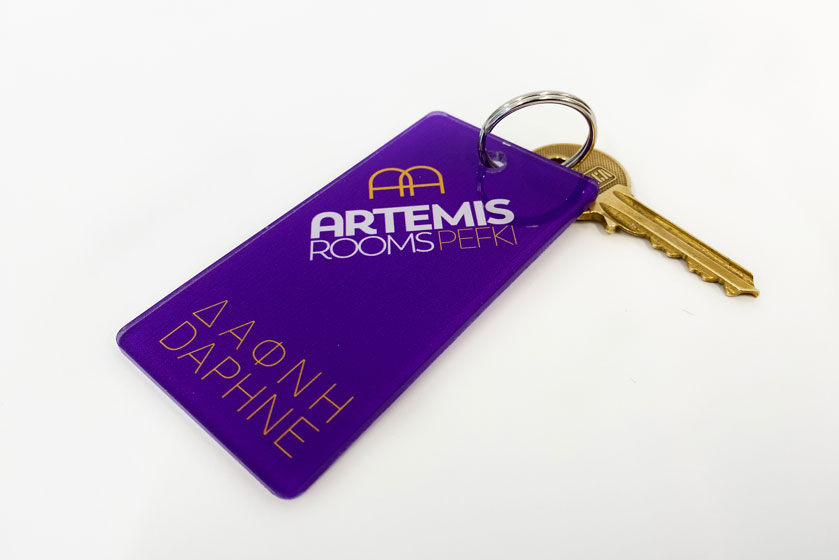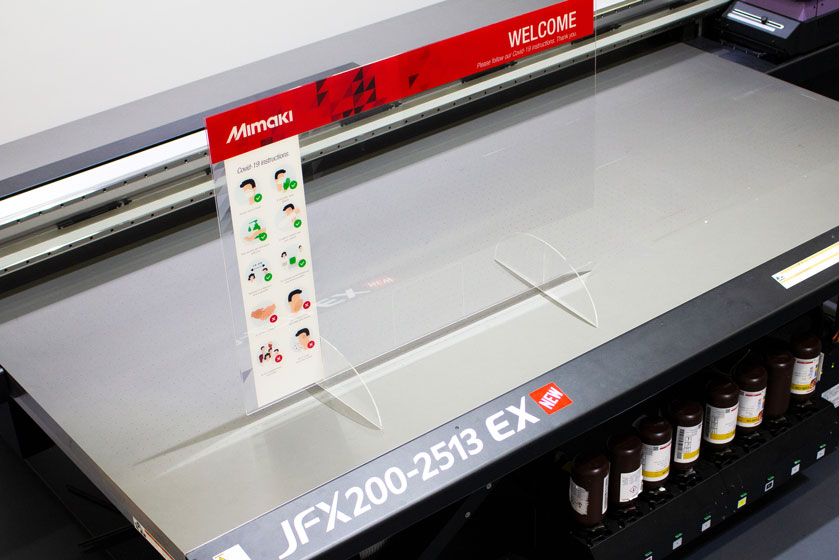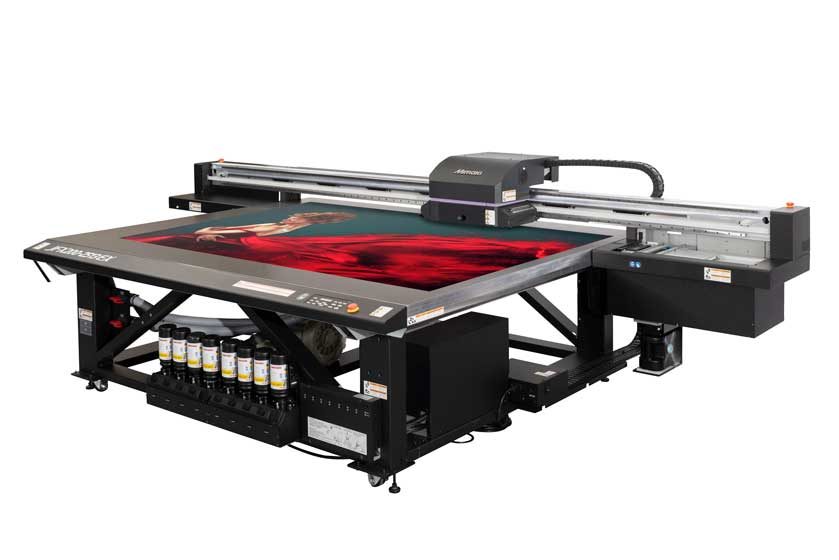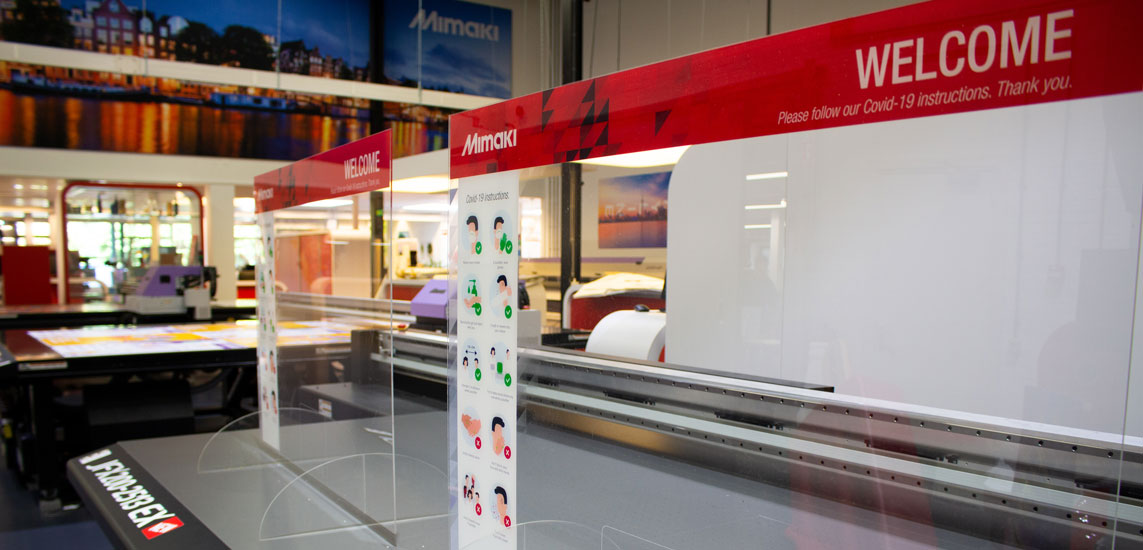
Keeping up with the sudden demand for acrylic.
As businesses weather this uncertain time, many look to expand their offering. Acrylic printing is one sector that should be on every large format printers’ list when considering new opportunities for increasing revenue. As a sector, it has been bucking the trend and has experienced a boom over the past year, with some printers who offer this application seeing an unprecedented influx of orders. Commonly used for photographic prints and signage, the pandemic has influenced a drastic shift towards creating acrylic splashback panels too.
So, what is it about acrylic printing that makes it so appealing?
1. Moving into new markets
COVID-19 has pushed many companies to reassess their business and consider whether they need to invest in new technology or expand into new sectors. Adding acrylic printing opens up a new array of interior and exterior applications. Printers can also expand their portfolio of customisable products with acrylic, with the technology allowing for affordable, cost effective short runs.
2. Look inside and outside for applications
As more people are confined indoors, there has been a significant uptake in interior decorating applications, which acrylic excels at, with varying possibilities for customisable prints. However, acrylic is a material that can easily work for both indoor and outdoor applications, with the durability to create long-lasting outdoor signs and graphics. Protective applications are another key area for acrylic, as many businesses request acrylic splashback panels and personalised food covers.
3. A medium which allows for creativity
Acrylic, over other substrates, is incredibly versatile, with the ability to be bent and lasered. This gives you the opportunity to work with it, cut into it and print on it for your desired outcome. It is also possible to print on transparent and slanted surfaces and on a variety of thicknesses (1 inch up to 30 inches). Additionally, printing both on the back and front of transparent surfaces allows the user to create immersive layered designs.
4. Photographic quality
Acrylic printing has long been renowned for its high-quality results. The technology offers a variety of compatible inks to achieve different effects or increase colour accuracy. White ink is a standout example when it comes to acrylic printing, especially with Mimaki’s JFX200 which has a 4x white option. In fact, using sand-blasted acrylic on one side further heightens the intensity of the ink.
To take a virtual tour of Mimaki’s showroom, see technology in action and discover products designed for acrylic printing, please visit the Digital Showroom. For further information on the products mentioned, please see www.mimakieurope.com.
